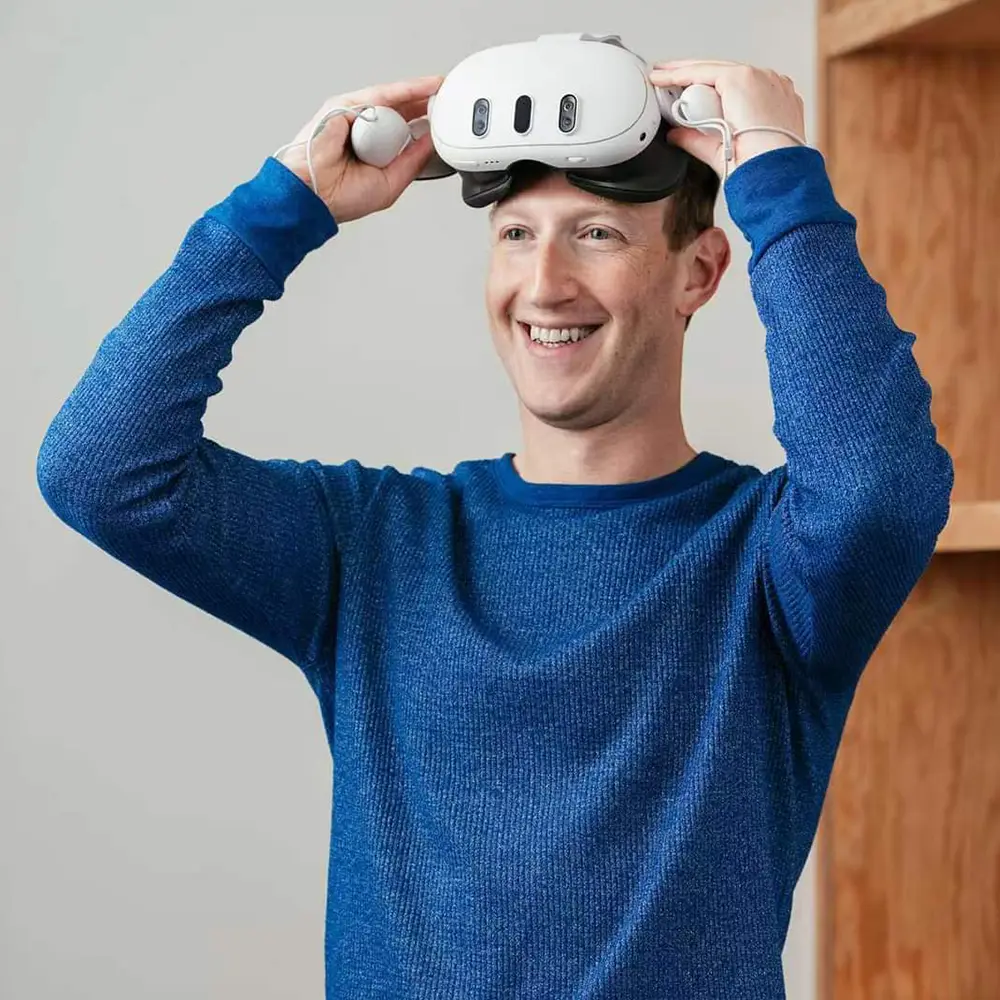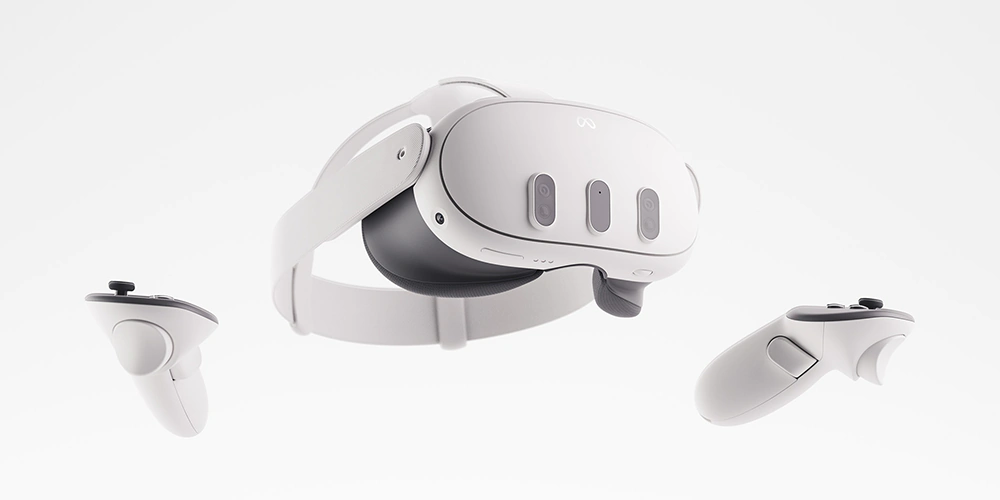A CEO of a company is the head of the pack, and is in the position to embody the essence of the company's vision and values.
Their role involves selling the company's vision to investors, stakeholders, and the public, and they're constantly pitching ideas, forging partnerships, and negotiating deals to propel the company forward.
While they're the chief that needs to be there to showcase the company's strengths, capabilities, and innovations, these people are the face of the company.
Because they may not be hitting the pavement like a door-to-door salesmen, they are undoubtedly the ultimate salesmen in a broader sense.
Mark Zuckerberg is the founder and CEO of Meta Platforms, the company that owns and operates Facebook, Instagram, Threads, and WhatsApp, among other products and services.
While he ranks among the leaders of other information technology companies, like the other Big Five corporations Alphabet (Google), Amazon, Apple, and Microsoft, Zuckerberg has to know how to sell things, because he has to.

Particularly when his company is having a direct competitor, which is larger that itself.
Meta Platforms was once a company named Facebook, before Zuckerberg rebranded it, in an attempt to show the world that it's no longer a social media company.
By rebranding its focus shifted to virtual reality, and it calls it the "metaverse."
Zuckerberg envisions the metaverse as the next evolution in social connection, succeeding the mobile internet. He wants people to use the digital spaces to socialize, learn, work, and play in a more immersive environment.
Meta’s Horizon Worlds is one of Zuckerberg's ideas towards creating a metaverse, where users can hop into different settings to hang out and play games.
While its headsets were considered amongst the first mainstream devices that hit the market for virtual reality, sales didn't translate well for Meta.
And since Apple is entering the competition with its Vision Pro device, Meta and Apple are in a "very deep, philosophical competition" over the future of technology and the metaverse.
But unlike some other competitors, Apple is not a rival Meta can simply squash, or put aside and forget.
Apple is bigger than Meta, and it's known for many things Meta isn't.
Because of that, Zuckerberg needs to do some pitching, in order to give Meta Quest 3 a better chance to compete with the more powerful and the more hyped Vision Pro.
Read: Apple Finally Enters The VR/AR Business By Introducing Spatial Computing With 'Apple Vision Pro'
"Before this, I expected that Quest would be the better value for most people because it’s really good and it’s like seven times less expensive."
"But after using it, I don’t just think Quest is the better value, I think Quest is the better product, period."
Zuckerberg may say things subjectively, and that he only say what he should say in order to boost the sales of his company's Quest 3 headsets.
But still, as the CEO of a mega company, if there is anything he cannot do, is blatantly lying to the public, or saying something without good reasons.
So here, all Zuckerberg could do, at least at this time, is to say things objectively, which means that he must say things based on data, peeking at the two's spec sheet.
First of, Meta sells the Quest 3 with a $500 starting price tag, and this is a huge bargain if compared to $3,500 for the Vision Pro.
Then, the Quest 3 comes with physical controllers, which should be a lot more usable and reliable than relying purely on sensors for gestures.
Not to mention, despite lacking the feature that mimics users' eyes, the Quest 3 also has a passthrough feature, and a higher refresh rate at 120Hz, compared to the Vision Pro's 100Hz.
And, despite using excessive plastic, the Quest 3 is weighs around 500 grams. The Vision Pro on the other hand, which is pretty much all metal and all glass, tips the scale at 600 grams.
Comparing Apple's Vision Pro and Meta's Quest 3 is like comparing an apple with an orange, meaning they only have little in common.

But again, the differences are there because the two devices are on a whole different level and not at all on the same league.
Meta's Quest 3 and Apple Vision Pro are built for different purpose and experience.
Whereas the Vision Pro is focused on spatial computing and mixed reality. designed for professionals and productivity, the Quest 3 is more focused towards VR enthusiasts and gamers.
But still, the Vision Pro's appeal is somehow greater than the Quest 3.
This is why Meta expects Apple to "reinvigorate" the public's interest in virtual reality headsets, and boost the sales of its own Quest 3.
With the Vision Pro's debut, Meta wishes to evolve Quest 3 from just a niche device, to garner a wider audience.
And Zuckerberg is the man for the job.
Read: Meta Wishes To 'Reinvigorate' People's Interest In Its Headsets, With Apple Vision Pro